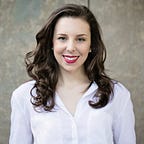My Story: Founding Ayuda Care
In April of 2017, I received a call from my mother around 2PM. Numb with shock, she informed me that her father had passed away, alone, in his mobile home in Naples, Florida. A concerned neighbor had decided to check in on her fastidious friend who never strayed from his military-like schedule and whom she had not seen in days. While it must have taken her less than thirty seconds to discover my grandfather’s untouched, unmoving body, he had passed away three days earlier.
Without hesitation, I told my mother I would fly with her to Philadelphia and assist with any and all logistics. Her one adamant request was that I lead the Jewish funeral service, to which I immediately agreed. Having acted as substitute cantor for bar and bat mitzvah services and memorized most High Holy Day prayers, I felt more than comfortable with this contribution.
The domino effect of my grandfather’s death exposed itself quickly and shamelessly. Before departing for the East Coast, I canceled a trip to Europe with my partner, requested two weeks off from work, and boarded my dog. It was worth it, though, to be able to spend uninterrupted time with my mom. We spent five days making a lot of decisions and falling asleep at 6PM, driving in the suburbs past White Birch trees, laughing about my mom’s college years at Goucher and MIT, willing ourselves to smile.
It feels like a distant dream when I think back to this time. Images emerge in my mind like a dramatic movie trailer: symbolic dirt on a coffin, iced coffee on an uneven table, my mom’s blue jacket, the smell of incense in a crypt. What remained most distinct, however, was the question my mom sometimes said, but certainly always thought: Should I have seen this coming, and is this my fault?
Of course, I told my mother that she was a doting daughter who called her father every Sunday afternoon, never missed a birthday, and listened devotedly as he chatted about the most banal of things. Nobody was to blame for his stubborn sense of pride and independence, and his lack of disclosure regarding his medical history.
I moved on after this somber life episode, yet couldn’t erase the nagging feeling that something was wrong. Not with me or my family, but a more existential feeling of wrongness. How is it that so many people die alone? Why do we marginalize the aging, the old, the sick? How is it that in a nation full of technological connection and convenience, people still die on their living room floor undiscovered for 72 hours?
At first, sheer curiosity motivated my research, which quickly morphed into a need and hunger to understand. I read about the loneliness epidemic in Great Britain; services for the isolated and deceased in Japan; Italy’s booming aging population; rural Australia where people lack access to care — the list goes on far too long for a single post.
This persistent question remained in the back of my mind everyday; but it relentlessly nagged me while conducting market research on chatbot technology and its various applications at work. Despite divergent views on the future of AI and conversational interfaces, one thing was clear: people want genuine connection regardless of the host, whether it’s on Facebook Messenger or Amazon Alexa. Technology represents an adaptive conduit; communication is the constant.
After losing sleep and some sanity, I decided to think about solutions. What could I make to prevent someone from living completely alone in old age? Can technology abate loneliness and increase safety? I didn’t have the answers, but I knew that talking to real people was the natural place to start.
What I discovered, though, surprised me. While I set out to directly help elders, I ended up talking to countless caregivers: family members, spouses, nurses, directors of home health agencies, government representatives, doctors, social workers, consultants, and techies. Everyone had the same concern and understanding that the system is fragmented and broken, and people need help.
But who exactly did they mean by people? The answer is caregivers. The unspoken heroes of countries. Citizens, family members, and kind neighbors who look after aging loved ones out of kindness. People who can’t be replaced by a bot, an electronic voice, a robot shaped like a bear. People who hug, kiss, put a moist cloth on someone’s sweaty forehead, lift wheelchairs, patiently wait in long lines at the post office and hospital. People who are unpaid, who have children, who have full time jobs, and who are beyond tired.
Ayuda Care was born out of this realization and represents my desire to empower these kinds of unseen caregivers. They are your friends and co-workers who fulfill their responsibilities on minimal sleep and excessive stress. And they deserve benefits from their employers for whom they give so much of themselves. Not just counseling from an Employee Assistance Program, and not just a phone number to call for reference, and not just an app to help with scheduling — they need another extension of their own family who can help remotely.
My grandfather’s passing wasn’t unusual. He had some friends in his community, a loving daughter who worked far away, and he checked in with those around him from time to time. But it wasn’t enough. Ayuda Care is here to change that. And it starts with you — by reading this, sharing it, and helping to spread some awareness.
~ Sara LeMesh, CEO and Co-Founder of Ayuda Care
Interested in learning more about eldercare and caregiving? Sign up for Ayuda’s weekly e-newsletter.
